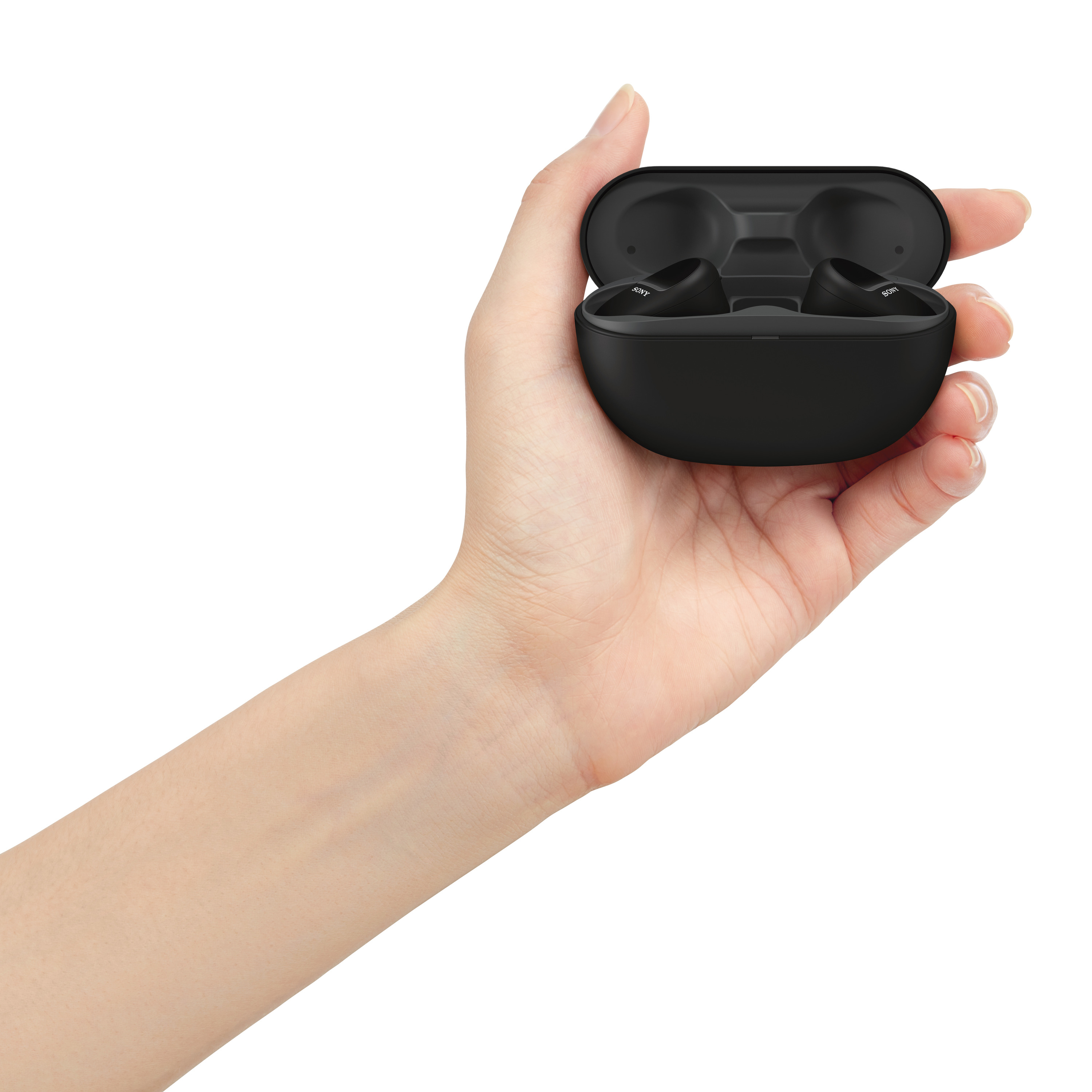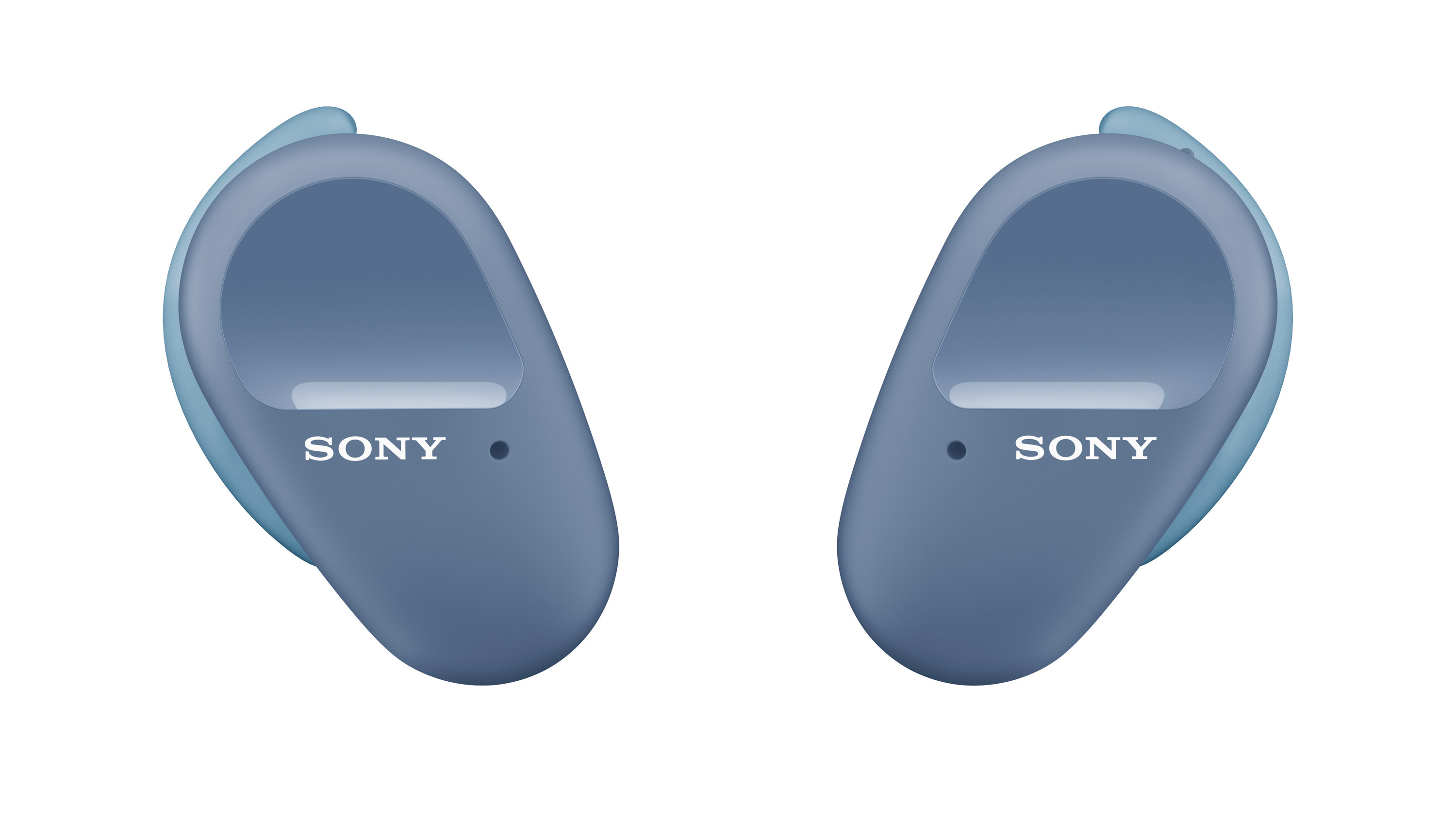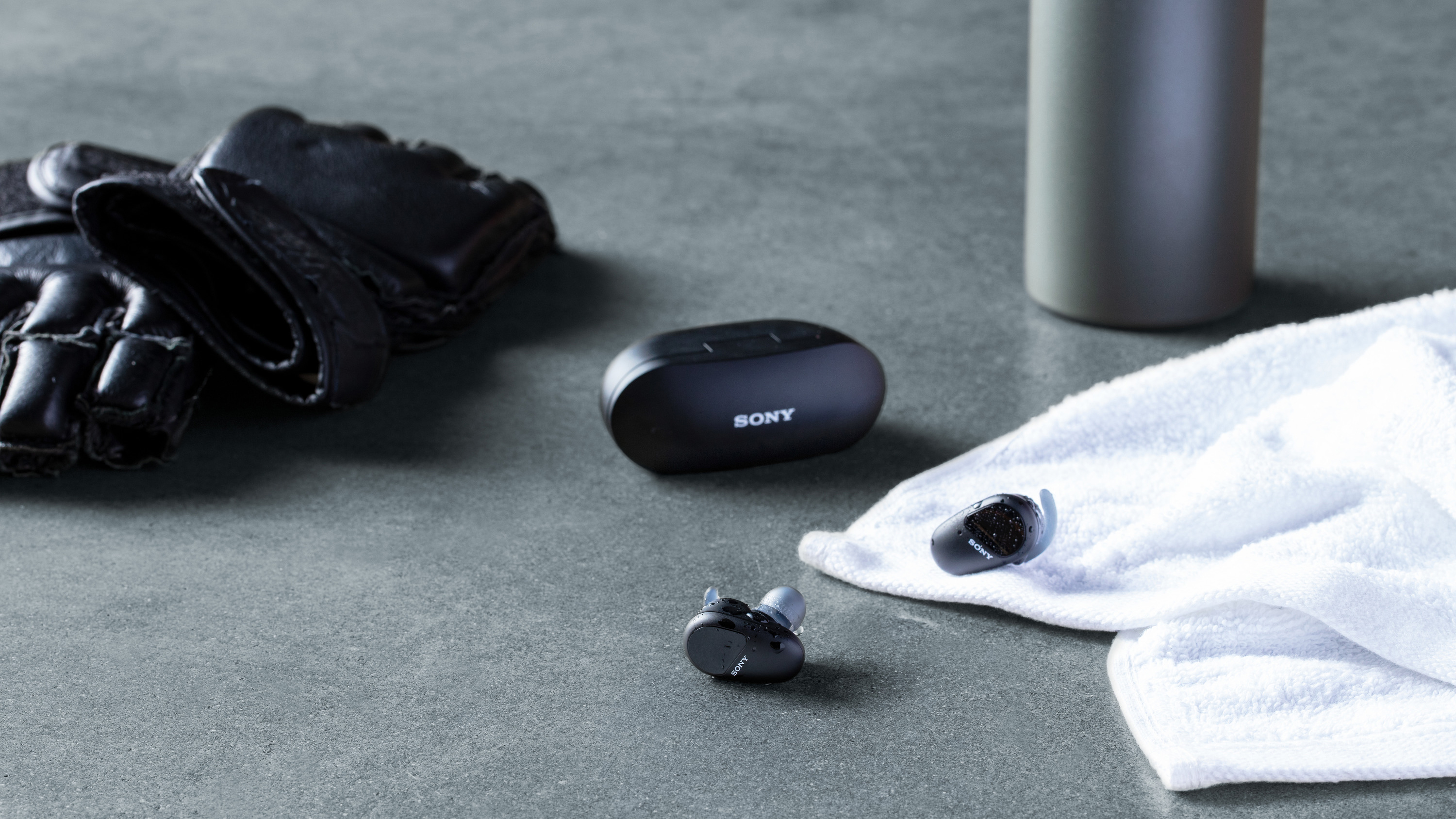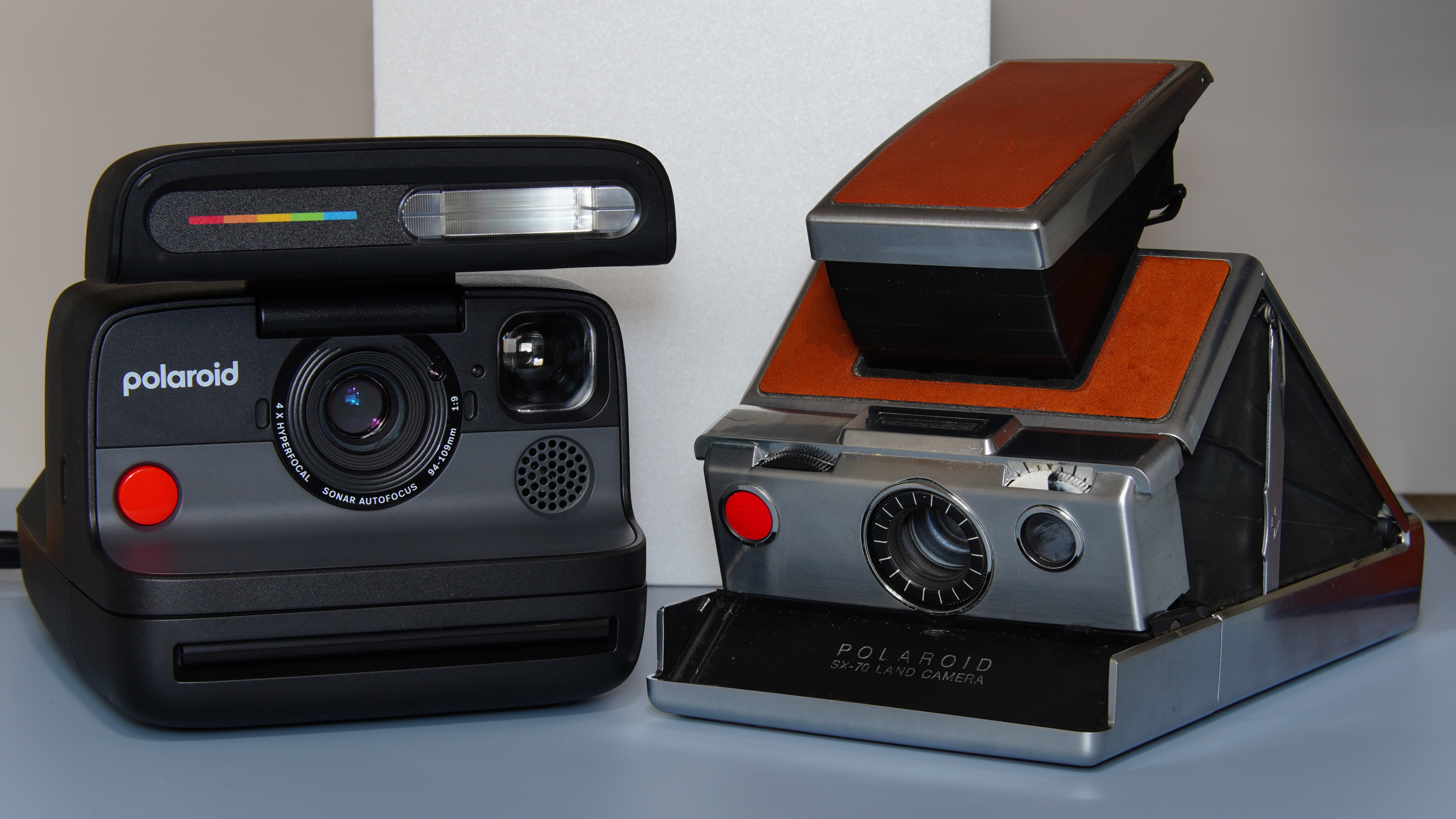Sony WF-SP800N review: Sony's cheaper true wireless buds are still a treat
Ignore the somewhat gawky looks and the Sony WF-SP800N are a bit of a bargain


Sony WF-SP800N offer a great deal for their very reasonable price. The excellent sound quality, water resistance and a secure fit make it easy to get over their slightly bulbous looks and short-ish battery life
-
+
Big specification
-
+
Detailed, expressive and upfront sound
-
+
Built to last
-
-
Big dimensions
-
-
Ho-hum battery life
-
-
Can sound slightly edgy in extremis
Why you can trust T3

The Sony WF-SP800N review in a sentence: if you can't afford Sony's top-of-the-line true wireless earbuds (the Sony WF-1000XM4) then you'll be pleased to know that Sony has some much cheaper ones to offer - you won't be as blown away by them but they still manage to perform better than most similarly priced alternatives.
When they were first launched, the Sony WF-SP800N were easily among the best true wireless earbuds available for anyone on a budget. They even make an excellent pair of running headphones because they provide a very secure fit and they're water-resistant as well.
Whatever way you look at it, the WF-SP800N true wireless earbuds are a bargain and they're undoubtedly worth adding to your shortlist.

Sony WF-SP800N: price and availability

The Sony WF-SP800N are on sale now, and in the UK should set you back no more than £129. In the United States they’re an equally reasonable $149, while Australian customers should budget for AU$209.
Sony WF-SP800N: build quality, design and battery life

For an in-ear headphone, an awful lot of the Sony WF-SP800N happens outside the wearer’s ear. These days, it’s really only Bose that designs a true wireless in-ear headphone that’s as ostentatious as a Sony – so if you want a bit of discretion where your new in-ears are concerned, these Sonys are not for you.
Despite the unpromising dimensions and each earbud’s equally considerable 9.8g weight, though, the WF-SP800N prove a perfectly comfortable proposition. Even if you wear them for hours on end, their elaborate arrangement of hooks and tips make sure they’re always secure and snug. But while they don’t feel their size or weight, there’s no denying they make your ears feel full - so if you’re squeamish about that sort of sensation, again we encourage you to look elsewhere.
The upside of that secure fit is that the WF-SP800N is far more suited to running and working out than the WF-1000XM3. It's also IP55 rated for dust and waterproofness.
As is predictable in a Sony product, build quality is unarguable. The fit and finish of the earbuds themselves is precise, and the hinges and magnets of the charging case itself feel robust and built to last. Everything is assembled with obvious care, and consequently the WF-SP800N feel ready to last for the long haul.
Another upside of being such a big ‘bud is that it allows for quite a big capacitive touch-control surface. Everything the Sonys can do this way - ‘play/pause’, ‘skip forwards/backwards’, ‘answer/reject/end call’ and ‘noise-cancelling on/off/boost external sound’ - can be reliably and consistently requested. A rather glaring omission from the WF-SP800N touch-talents is volume control, though - not for the first time, here’s a wireless Sony headphone that requires you to either fish out your music player or summon your voice assistant if you want to adjust the volume. Which we can’t help characterising as ‘sub-optimal’.
As far as voice control goes, though, you can choose from Amazon Alexa, Google Assistant or Siri. The mic array does an excellent job of delivering instructions, just as it does in keeping call quality crisp and coherent.
A degree of control is also available in Sony’s exemplary ‘Headphones Connect’ app. It’s useful, stable and logical - which puts it ahead of 99% of the apps served up by Sony’s nominal competitors.
As far as battery life goes, the Sonys are your classic game of two halves. The earbuds themselves are good for around nine hours of power before they need recharging (the usual Ts & Cs apply here, of course: you won’t achieve that sort of figure if you’re listening at full whack the entire time), while there’s another nine hours in the charging case. In short, then: earbuds battery life = good, charging case battery life = humdrum.
Sony WF-SP800N: sound quality

The WF-SP800N connect to a music player using Bluetooth 5.0 - which is more than adequate for streaming high-resolution audio files, as well as the ‘360 Reality Audio’ that Sony continues to make a quite considerable fuss about.
For the uninitiated, 360 Reality Audio wants to put you in the centre of the audio action. It’s not unlike Dolby Atmos, but for music, inasmuch as it intends to give sounds far more distinct and numerous origin-points than simply ‘left’, ‘right’, or ‘centre’. Anyone with a top-tier Deezer or Tidal subscription has access to some music mastered for 360 Reality Audio - so that seems as good a place as any to start.
And there’s no denying that 360 Reality Audio is a far more spacious, far more immersive listen than plain old stereo. The sensation of sitting in the centre of the action, and the impression that sounds are able to emanate from virtually anywhere, is quietly thrilling. It’s a pity that the current selection of music that’s mastered for 360 Reality Audio is a) so predictable and b) so pedestrian.
And anyway, the overwhelming majority of WF-SP800N owners will be doing the overwhelming majority of their listening using straightforward stereo sources from a straightforward streaming service subscription. So it’s food to be able to report that the Sony WF-SP800N are just as convincing and enjoyable a listen when operating at this level.
They’re a quite assertive listen, the Sonys, to the point that they could (with the wrong source material) be considered ‘forthright’. Certainly they attack the highest frequencies with relish, and constantly seem on the verge of becoming a little bit hard and abrasive where treble sounds are concerned. Unless you over-do things in terms of volume, though, or enjoy listening to percussion-orientated music, they always stay just the right side of ‘shrill’.
Through the midrange the Sonys are just as assertive, although nothing like as edgy. They’re packed with information, prepared to dig out as much detail in a recording as is available, and they serve it all up with absolute confidence. By the prevailing standards of true wireless in-ears at this sort of money, the WF-SP800N allow a singer far greater expression, both of character and technique, than is usual.
Low-frequency reproduction can be problematic at first, though. Unless you get into the ‘Headphones Connect’ app to disable it, Sony’s ‘Clear Bass’ feature makes an absolute mess of the way the WF-SP800N deal with the bottom end stuff. ‘Clear Bass’, it turns out, actually means ‘plump and over-confident bass’ that can impact negatively both on the midrange above it and on the overall way the Sonys deal with rhythm and tempo. Banish ‘Clear Bass’, though, and the low frequencies are revealed as quite sprightly, punchy and straight-edged - everything they should be, in other words.
Timing and integration is good, and the WF-SP800N demonstrate decent dynamic ability too - they’re certainly capable of putting plenty of distance between ‘very quiet’ and ‘very loud’. And they’re pretty deft where the more subtle harmonic dynamics of a recording are concerned too.
Sony WF-SP800N: verdict
For the price Sony is asking, you can’t really expect true wireless in-ear perfection. And, sure enough, the Sony WF-SP800N aren’t perfect, but they do get an awful lot right in terms of sound, build quality and how smoothly they work.
As long as you don’t need headphones that can go all the way around the clock on a single charge, and are looking in this low-to-mid-range price bracket, the WF-SP800N are approaching ‘no-brainer’ status. They do admittedly stick out of your ears in an odd way, but that is also a quite small price to pay.
Sign up to the T3 newsletter for smarter living straight to your inbox
Get all the latest news, reviews, deals and buying guides on gorgeous tech, home and active products from the T3 experts
Simon Lucas is a freelance technology journalist and consultant, with particular emphasis on the audio/video aspects of home entertainment. Before embracing the carefree life of the freelancer, he was editor of What Hi-Fi? magazine and website – since then, he's written for titles such as Wired, Metro, the Guardian and Stuff, among many others. Should he find himself with a spare moment, Simon likes nothing more than publishing and then quickly deleting tweets about the state of the nation (in general), the state of Aston Villa (in particular) and the state of his partner's cat.
-
 "A Polaroid SX-70 in 2025 would cost £2,500", says company exec
"A Polaroid SX-70 in 2025 would cost £2,500", says company execEXCLUSIVE: T3 discusses the reason why the iconic camera hasn't been remade
By Sam Cross Published
-
 Berghaus wants to be your new favourite street-to-summit brand
Berghaus wants to be your new favourite street-to-summit brandThe brand's latest Trail Collection brings the company up to speed with some of the most popular outdoor labels
By Matt Kollat Published
-
 FREITAG's upcycled F260 MIAMI WIDE is a gloriously bold answer to boring tote bags
FREITAG's upcycled F260 MIAMI WIDE is a gloriously bold answer to boring tote bagsThe extra-wide shopper bag is built for beach days, flippers and all
By Matt Kollat Published